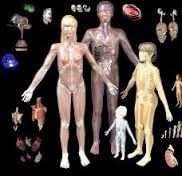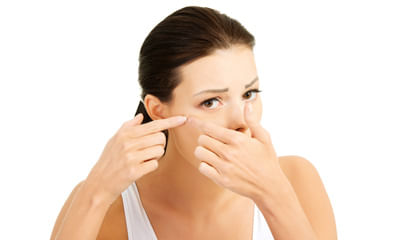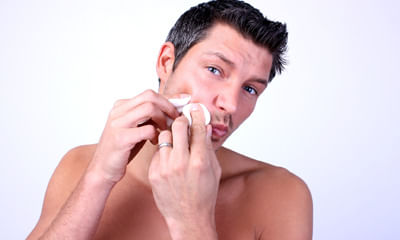Get the App
For Doctors
Login/Sign-up
About
Health Feed
AllQ&AsTips
Ptu 50Mg Tablet Health Feed
Asked for female, 26 years old from Bangalore
Share
Bookmark
Report
Yes, it's safe. In fact, it's unsafe not to take thyroid medication during pregnancy if you need it. Whether you have hypothyroidism (an underactive thyroid) or the much less common hyperthyroidism (an overactive thyroid), you'll probably need to take medication and be closely monitored.
During pregnancy, mild hyperthyroidism, in which TSH is low but free T4 is normal, does not require treatment. More severe hyperthyroidism is treated with antithyroid medications, which act by interfering wi...more
During pregnancy, mild hyperthyroidism, in which TSH is low but free T4 is normal, does not require treatment. More severe hyperthyroidism is treated with antithyroid medications, which act by interfering wi...more
207 people found this helpful
Last Updated: 10 years ago• Featured Tip
Share
Bookmark
Report
You'll want to see your endocrinologist (endocrine system, remember?) or primary care physician asap. You may be referred to a doctor who specializes in thyroid issues (as opposed to diabetes), but your endocrinologist will know exactly how to diagnosis you. The primary way to diagnose thyroid disease is something called a tsh (thyrotropin stimulating hormone) test, which checks the amount of thyroid-stimulating hormone in your system. It's a very easy and inexpensive blood test, so don't delay ...more
Asked for male, 33 years old from Allahabad
Share
Bookmark
Report
Last Updated: 6 years ago• Featured Tip
Share
Bookmark
Report
Nothing can be more gratifying than welcoming your bundle of joy into this world. Care needs to be taken during pregnancy to ensure that the developing foetus is healthy. Many pregnant women suffer from Thyroid problems. Thyroid Stimulating Hormone (TSH) is an important hormone produced by the Pituitary gland. TSH regulates the production and action of the Thyroid Hormones (T3 and T4). Estrogen and Human Chorionic Gonadotropin also affects the production of the thyroid hormones. Abnormal level o...more
Last Updated: 7 years ago• Featured Tip
Share
Bookmark
Report
Nothing can be more gratifying than welcoming your bundle of joy into this world. Care needs to be taken during pregnancy to ensure that the developing foetus is healthy. Many pregnant women suffer from Thyroid problems. Thyroid Stimulating Hormone (TSH) is an important hormone produced by the Pituitary gland. TSH regulates the production and action of the Thyroid Hormones (T3 and T4). Estrogen and Human Chorionic Gonadotropin also affects the production of the thyroid hormones. Abnormal level o...more
Last Updated: 8 years ago• Featured Tip
Share
Bookmark
Report
Nothing can be more gratifying than welcoming your bundle of joy into this world. Care needs to be taken during pregnancy to ensure that the developing foetus is healthy. Many pregnant women suffer from thyroid problems. Thyroid stimulating hormone (tsh) is an important hormone produced by the pituitary gland. Tsh regulates the production and action of the thyroid hormones (t3 and t4). Estrogen and human chorionic gonadotropin also affects the production of the thyroid hormones. Abnormal level o...more
Last Updated: 8 years ago• Featured Tip
Share
Bookmark
Report
Nothing can be more gratifying than welcoming your bundle of joy into this world. Care needs to be taken during pregnancy to ensure that the developing foetus is healthy. Many pregnant women suffer from Thyroid problems. Thyroid Stimulating Hormone (TSH) is an important hormone produced by the Pituitary gland. TSH regulates the production and action of the Thyroid Hormones (T3 and T4). Estrogen and Human Chorionic Gonadotropin also affects the production of the thyroid hormones. Abnormal level o...more
Asked for female, 24 years old from Hyderabad
Share
Bookmark
Report
1. Avoid touching your face: Dirt and bacteria on your hands can clog your pores and cause acne if you touch your face too much. If you feel irritation due to acne, use a gentle, oil-free daily facial wipe to remove excess dirt and reduce irritation. Resist the temptation to touch our pick at your face
2. Do not squeeze or pop your blemishes. This increases the risk of developing scars. In some cases, squeezing a pimple may spread the bacteria even further
3. Avoid too much sun exposure:...more
2. Do not squeeze or pop your blemishes. This increases the risk of developing scars. In some cases, squeezing a pimple may spread the bacteria even further
3. Avoid too much sun exposure:...more
Health Query
Share
Bookmark
Report
1. Avoid touching your face: Dirt and bacteria on your hands can clog your pores and cause acne if you touch your face too much. If you feel irritation due to acne, use a gentle, oil-free daily facial wipe to remove excess dirt and reduce irritation. Resist the temptation to touch our pick at your face
2. Do not squeeze or pop your blemishes. This increases the risk of developing scars. In some cases, squeezing a pimple may spread the bacteria even further
3. Avoid too much sun exposure:...more
2. Do not squeeze or pop your blemishes. This increases the risk of developing scars. In some cases, squeezing a pimple may spread the bacteria even further
3. Avoid too much sun exposure:...more
Asked for female, 30 years old from Delhi
Share
Bookmark
Report
Please follow below mention advice.
1. Avoid touching your face: Dirt and bacteria on your hands can clog your pores and cause acne if you touch your face too much. If you feel irritation due to acne, use a gentle, oil-free daily facial wipe to remove excess dirt and reduce irritation. Resist the temptation to touch our pick at your face
2. Do not squeeze or pop your blemishes. This increases the risk of developing scars. In some cases, squeezing a pimple may spread the bacteria even fur...more
1. Avoid touching your face: Dirt and bacteria on your hands can clog your pores and cause acne if you touch your face too much. If you feel irritation due to acne, use a gentle, oil-free daily facial wipe to remove excess dirt and reduce irritation. Resist the temptation to touch our pick at your face
2. Do not squeeze or pop your blemishes. This increases the risk of developing scars. In some cases, squeezing a pimple may spread the bacteria even fur...more
160 people found this helpful
Ask a free question
Get FREE multiple opinions from Doctors
posted anonymously


















